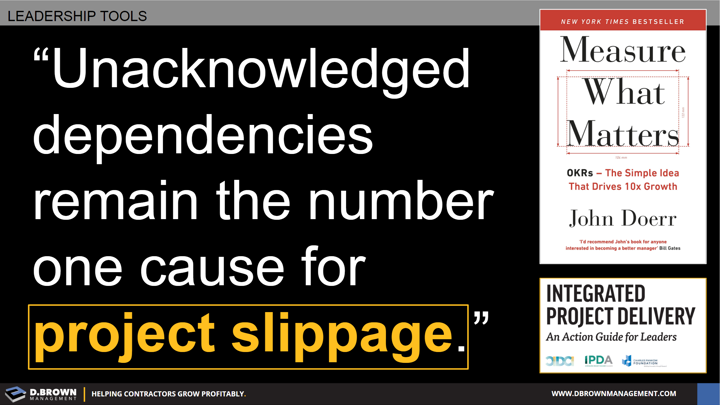It is those connections between tasks and people that are often the culprit of delays rather than the actual speed of task completion itself.
- When a business or project is simpler it can be easily managed using a task list.
- As it grows in complexity tools like Gantt Charts and the Critical Path Method are required for sequencing.
- Relatively quickly you get to the point where a project or process becomes so complex that not all the dependencies can be seen by the person doing the planning and management.
- Even if all those dependencies could be seen by the person managing the overall project or process it is very important for the critical front-line supervisory level to deeply understand these dependencies.
Additional tools and operating rhythms are required to develop the people that are necessary to develop the project and the company.
Project: The Last Planner System
Company: Objectives & Key Results (OKR)

